Search the Blog
Categories
- Books & Reading
- Broadband Buzz
- Census
- Education & Training
- General
- Grants
- Information Resources
- Library Management
- Nebraska Center for the Book
- Nebraska Memories
- Now hiring @ your library
- Preservation
- Pretty Sweet Tech
- Programming
- Public Library Boards of Trustees
- Public Relations
- Talking Book & Braille Service (TBBS)
- Technology
- Uncategorized
- What's Up Doc / Govdocs
- Youth Services
Archives
Subscribe
Author Archives: Mary Sauers
What’s Up Doc? New State Agency Publications Received at the Library Commission
New state agency publications have been received at the Nebraska Library Commission for July 2016. Included are titles from the Nebraska Fire Marshal, the Nebraska Department of Labor, The Nebraska State Board of Geologists, and the Juvenile Justice system, to name a few.
Government Publication Resources in Languages Other Than English
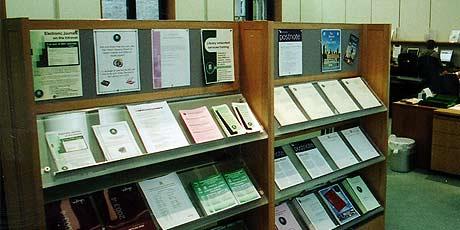 Do you have newly arrived immigrants or refugees in your community? Do you need to find government-published resources that might be helpful, especially in other languages?
Do you have newly arrived immigrants or refugees in your community? Do you need to find government-published resources that might be helpful, especially in other languages?
Following is a list of resources:
1. Search USA.GOV for Spanish Language Publications. You can change usa.gov to the Spanish language version: Gobierno.usa.gov
Or, link directly to the usa.gov consumer order site for free and low cost government publications. Scroll down under the categories tab and click on the red “español” button. Many of these publications are in pdf format for download. The section “programas federales” has a variety of social security brochures and 2 publications on immigration.
2. Also try Limited English Proficiency for multiple sources of information in other languages
3. Substance Abuse and Mental Health Services Administration — This is a link for ordering Spanish language mental health printed or .pdf publications from SAMHSA.
4. U.S. Citizenship and Immigration Services Foreign Language Resources Many different resources in a wide range of languages to choose from. There is also an excellent Citizenship Toolkit published by the GPO. Click on other languages for resources in Spanish and Chinese plus other languages.
5. Federal Trade Commission — Link to bulk order publications in Spanish from the FTC.
6. Link to consumer order site for free and low cost government publications. Scroll down under the categories tab and click on the red “español” button. Many of these publications are in pdf format for download. The section “programas federales” has a variety of social security brochures and 2 publications on immigration.
7. The entire CDC (Centers for Disease Control) site can be changed to Spanish and has excellent health information.
This is by no means a comprehensive list, but still lots of resources to get you started!
Free Webinar–Beyond the Job Description: Ten Practical Tips for the New Rural Library Director
 This webinar, presented in collaboration with ARSL, explores practical skills for new library directors serving a small or rural community.
This webinar, presented in collaboration with ARSL, explores practical skills for new library directors serving a small or rural community.
Date: August 11th, 2016
Time: 3:00 PM – 4:00 PM Eastern Time, 2:00-3:00 Central Time
On paper, your job description as a library director may not cover some of the unique challenges and opportunities that come with serving a small or rural community. Juggling the nuances of a new position can be overwhelming, but equipped with a tool belt of everyday skills ranging from assessment to communication and outreach to time-management, you can move through your new role with confidence. This session will be useful for anyone interested in strengthening their role in the library, even if you aren’t a director. Come learn from a successful new director, 10 fresh tips for working with staff, boards, and the community to create a strong and vibrant library. Join us and bring your tips and ideas to help new directors succeed!
This webinar is hosted in collaboration with the Association for Rural and Small Libraries.
Presenter: Jennifer Pearson, Director, Marshall County Memorial Library (TN) and current board member, ARSL
Federal Trade Commission Raises Awareness About Scams
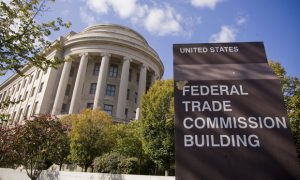 As part of their ongoing effort to raise awareness about scams targeting the Latino community, the Federal Trade Commission has developed a series of “fotonovelas” in Spanish. The stories are based on complaints to the FTC from Spanish speakers throughout the nation and offer practical tips to help detect and stop common scams. You can order copies of the Spanish-language fotonovelas — for free — and distribute them in your community. Here are some examples:
As part of their ongoing effort to raise awareness about scams targeting the Latino community, the Federal Trade Commission has developed a series of “fotonovelas” in Spanish. The stories are based on complaints to the FTC from Spanish speakers throughout the nation and offer practical tips to help detect and stop common scams. You can order copies of the Spanish-language fotonovelas — for free — and distribute them in your community. Here are some examples:
Fotonovelas
Maria and Rafael Learn the Signs of a Debt Relief Scam
This fotonovela alerts readers to the common signs of a debt relief scam and tells them where they can find legitimate credit counseling help.
Car-Buying Trouble
This fotonovela tells how to avoid trouble when you finance a new or used car through the dealership and where to report problems with dealer financing.
Notario scams
This fotonovela tells readers the warning signs of a notario scam, where to find help with the immigration process, and how to report scams to the Federal Trade Commission.
Debt Collectors
In this fotonovela, Juan learns his rights when dealing with debt collectors, where to go for information, and how to file a complaint.
Income Scam
This fotonovela alerts Latino consumers to the signs of an income scam, and provides advice to avoid falling for a scam.
Government Imposters
This fotonovela tells readers how to identity a government imposter and warns of the dangers of sending money to a stranger.
For more information, visit Fotonovelas at the Federal Trade Commission.
Nebraska DMV Announces Launch of Online Change-of-Address Service
 The Nebraska Department of Motor Vehicles (DMV) has launched a significant enhancement to an existing online service making it easier for Nebraskans to do business with the state of Nebraska. Holders of Nebraska driver’s licenses and IDs can now update their address online from their computer, tablet, or phone. In two weeks, 1,100 drivers have already used the application, reflecting unprecedented success.
The Nebraska Department of Motor Vehicles (DMV) has launched a significant enhancement to an existing online service making it easier for Nebraskans to do business with the state of Nebraska. Holders of Nebraska driver’s licenses and IDs can now update their address online from their computer, tablet, or phone. In two weeks, 1,100 drivers have already used the application, reflecting unprecedented success.
Launched on June 28, 2016, Nebraskans can comply with the statutory requirement to update their address within 60 days of moving. Using the new enhancement, they can provide the documents necessary to prove their address and circumvent the necessity to make a trip to a driver’s license office.
“We realize many of our customers want and need to do business with us outside of traditional business hours. We respect their time and were able remove this barrier to the online driver license renewal/replacement process,” stated DMV Director Rhonda Lahm. “This is one more way we can assist Nebraskans to interact with the DMV services they need in the most convenient manner possible.”
The Driver License Renewal/Replacement online application with the Change of Address capability can be found by going to http://www.clickDMV.nebraska.gov. Two types of documentation are required to prove an address; 14 different options exist. After documents are submitted, they are reviewed for approval by DMV driver licensing staff to approve valid documentation.
“This service will allow our customers who need a relatively simple transaction to get their business completed at a time which is convenient to them,” says Sara O’Rourke, Driver License Administrator for the DMV. “This accommodates the largest number of persons possible and promotes efficient use of our DMV services for our citizens.”
The online application was developed by Nebraska Interactive, LLC. “We are excited to add a new enhancement which saves constituents time and creates more effective and efficient government services,” stated Brent Hoffman, President of Nebraska Interactive.
Users can go to Nebraska.gov to find out more about online Government services in Nebraska.
Free Webinar : Health Information Resources for Seniors
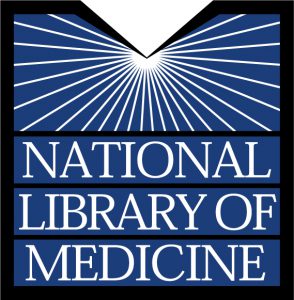 Health Information Resources for Seniors
Health Information Resources for Seniors
July 27, 2016 1pm Mountain/ 2pm Central
https://webmeeting.nih.gov/mcr2
Presenter: Annette Parde-Maass, Education Coordinator, National Network of Libraries of Medicine, MidContinental Region
As America’s 65-and-over population potentially doubles in the next 35-years, knowing where to find reliable information about senior health will be crucial. This webinar will demonstrate senior health resources from the National Library of Medicine and other centers that address needs at various ages and levels of health. Participants will learn about the sites, how to navigate them, and ways to promote and teach them to senior populations and caregivers.
For more information, visit https://nnlm.gov/mcr/education/discover. Registration is not required. We offer 1 Medical Library Association Continuing Education credit per session (details are provided at the end of each session).
Christian Minter, christian.minter@unmc.edu
Annette Parde-Maass, AnnetteParde-Maass@creighton.edu
Education and Outreach Coordinators
National Network of Libraries of Medicine
Check out the Bringing Health Information to the Community (BHIC) Blog, http://nnlm.gov/bhic/
New State Agency Publications Received at the Library Commission
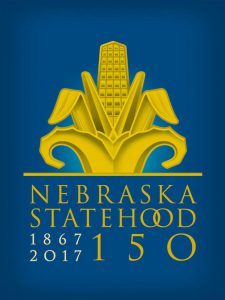 New state agency publications have been received at the Nebraska Library Commission for June 2016. Included are titles from the Nebraska Auditor of Public Accounts, Nebraska Public Power District, The Nebraska State Board of Health, and the Nebraska Department of Veteran’s Affairs, to name a few.
New state agency publications have been received at the Nebraska Library Commission for June 2016. Included are titles from the Nebraska Auditor of Public Accounts, Nebraska Public Power District, The Nebraska State Board of Health, and the Nebraska Department of Veteran’s Affairs, to name a few.
Nebraska 150 Books : July 2016 Featured Titles
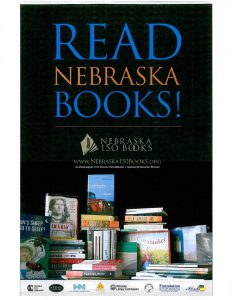 Summer in Nebraska provides a rich environment for authors to reflect on the agriculture and natural phenomena of the Great Plains. The featured books for July highlight the magestic aspects of Nebraska’s land and climate: thunderstorms, endless corn fields, big sky, and all of the creatures that are native to this land.
Summer in Nebraska provides a rich environment for authors to reflect on the agriculture and natural phenomena of the Great Plains. The featured books for July highlight the magestic aspects of Nebraska’s land and climate: thunderstorms, endless corn fields, big sky, and all of the creatures that are native to this land.
Fiction: Haven’s Wake, by Ladette Randolph. Early July, and the corn in eastern Nebraska stands ten feet tall; after a near-decade of drought, it seems too good to be true, and everyone is watching the sky for trouble. For the Grebels, whose plots of organic crops trace a modest patchwork among the vast fields of soybeans and corn, trouble arrives from a different quarter in the form of Elsa’s voice on her estranged son’s answering machine: “Your father’s dead. You’ll probably want to come home.”
When a tractor accident fells the patriarch of this Mennonite family, the threads holding them together are suddenly drawn taut, singing with the tensions of a lifetime’s worth of love and faith, betrayal and shame. Through the competing voices of those gathered for Haven Grebel’s funeral, acts of loyalty and failures, long-suppressed resentments and a tragic secret are brought to light, expressing a larger, complex truth. University of Nebraska Press, and 2014 Nebraska Book Award for Fiction.
Non-Fiction: Keith County Journal, by John Janovy, Jr. To learn from nature, not about nature, was the imperative that took John Janovy Jr. and his students into the sandhills, marshes, grasslands, canyons, lakes, and streams of Keith County in western Nebraska. The biologist explores the web of interrelationships among land, animals, and human beings. Even termites, snails, and barn swallows earn respect and assume significance in the overall scheme of things. Janovy, reminiscent of Henry David Thoreau in his acute powers of observation and search for wisdom, has written a new foreword for this Bison Books/University of Nebraska Press edition.
Children’s Literature: Night of the Twisters, by Ivy Ruckman. When a tornado watch is issued one Tuesday evening in June, twelve-year-old Dan Hatch and his best friend, Arthur, don’t think much of it. After all, tornado warnings are a way of life during the summer in Grand Island, Nebraska. But soon enough, the wind begins to howl, and the lights and telephone stop working. Then the emergency siren starts to wail. Dan, his baby brother, and Arthur have only seconds to get to the basement before the monstrous twister is on top of them. Little do they know that even if they do survive the storm, their ordeal will have only just begun. . . .
Poetry: Nebraska : This Place, These People, by former Nebraska State Poet William (Bill) Kloefkorn. This 128-page poetry collection is filled with more than 80 of Kloefkorn’s superbly-crafted accounts of prairie and city life. This is the only book in Kloefkorn’s distinguished writing career devoted entirely to Nebraska. It’s infused with beautiful hand-drawn illustrations, plus excerpts from other great Nebraska writers such as Willa Cather and John Neihardt, offering insight into Kloefkorn’s vision, inspiration and adoration of our amazing state.
Doc Spot : Firearm Laws in Nebraska–A Legislative Research Office Backgrounder
Firearm Laws in Nebraska–A Legislative Research Office Backgrounder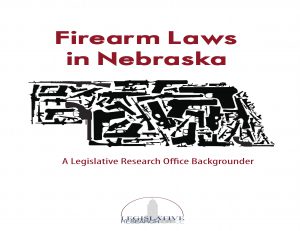 provides an overview of laws governing firearms in Nebraska. It also describes federal firearm laws to the extent they constitute a framework for state law.
provides an overview of laws governing firearms in Nebraska. It also describes federal firearm laws to the extent they constitute a framework for state law.
Firearms are governed by myriad laws at the state and federal level. For purposes of this Backgrounder, we focus on laws pertaining to buying handguns, carrying concealed handguns, criminal history background checks, and the role of federally licensed firearms dealers. We also provide a reference guide to Nebraska’s other firearms laws, a chronology of significant federal law, and supplemental firearms information in a “Q and A” format.
This Backgrounder is not intended to take a position on the ownership, possession, sale, or use of firearms—issues many find polarizing—nor to offer legal advice. In writing this report, we have endeavored to be neutral on firearms while providing information during a time when the debate over firearms has intensified.
As evidence, at least 20 proposals pertaining to firearms were pending before the Legislature in 2016. (A list of the proposals can be found in Appendix B.) We hope senators and the public, in debating firearm issues, will find the information contained in this report to be a useful, introductory guide to Nebraska’s firearm laws.
The content of this report relies on state and federal laws and supplemental material produced by the FBI and the Bureau of Alcohol, Tobacco, Firearms, and Explosives (ATF).
In addition, several individuals aided our understanding of the nuances of firearm laws. In particular, we would like to thank Nebraska State Patrol Captain Mike Jahnke and Jeff Avey, records analysis supervisor, criminal identification division of the patrol.
If you have further questions about firearms, or any area of legislative interest,
please contact the Legislative Research Office, 402-471-2221.
(Reprinted from Firearm Laws in Nebraska–A Legislative Research Office Backgrounder (Introduction)).
This publication can be printed out by clicking the picture or title link above.
New Government Publications Received at the Library Commission
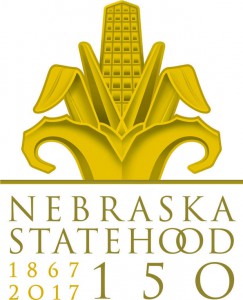 New state government publications have been received at the Nebraska Library Commission for May 2016. Included are reports from the Nebraska Accountability and Disclosure Commission, the Nebraska Criminal Justice Partners, the Nebraska State Electrical Division, Mid-America Transportation Center, and the University of Nebraska Press, to name a few.
New state government publications have been received at the Nebraska Library Commission for May 2016. Included are reports from the Nebraska Accountability and Disclosure Commission, the Nebraska Criminal Justice Partners, the Nebraska State Electrical Division, Mid-America Transportation Center, and the University of Nebraska Press, to name a few.
Free to Depositories : Updated SuDoc Classification Chart Poster
Many Federal depository libraries display the handy, “How to Locate a U.S. Government Publication” poster near their FDLP collection. It guides patrons in navigating U.S. Government resources that are arranged by Superintendent of Documents classification number.
This poster has been updated and is now available for free ordering by Federal depository libraries. Please discard any old versions of this poster, as they now contain outdated information.
The new posters are 11 X 17 and are made of durable paperboard. Please login to FDLP.gov, and order your library’s posters today (limit 5 posters per depository).
Free Webinar : Consumer Financial Protection Bureau — Your Money, Your Goals
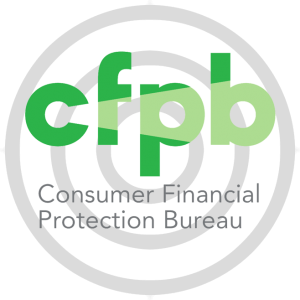 A live training webinar, “CFPB: Your Money, Your Goals,” will be presented on Wednesday, June 15, 2016.
A live training webinar, “CFPB: Your Money, Your Goals,” will be presented on Wednesday, June 15, 2016.
Register today for “CFPB: Your Money, Your Goals”
The webinar is free, however registration is required. Upon registering, a confirmation email will be sent to you. This registration confirmation email includes the instructions for joining the webinar.
Registration confirmations will be sent from sqldba@icohere.com. To ensure delivery of registration confirmations, registrants should configure junk mail or spam filter(s) to permit messages from that email address. If you do not receive the confirmation, please notify GPO.
- Date: June 15, 2016
- Start time: 2:00 p.m. (Eastern)
- Duration: 60 minutes
- Speaker: Patty Avery, Financial Empowerment Specialist, Office of Financial Empowerment, Consumer Financial Protection Bureau (CFPB)
- Description: Learn about “Your Money, Your Goals,” a toolkit to help front line staff and volunteers to help people set goals, choose financial products, and build skills in managing money, credit, and debt. “Your Money, Your Goals” is designed to address different settings in which people or organizations work with consumers.
- Expected level of knowledge for participants: No prerequisite knowledge required
Closed captioning will be available for this webinar.
GPO’s eLearning platform presents webinars using WebEx. In order to attend or present at a GPO-hosted webinar, a WebEx plug-in must be installed in your internet browser(s). Download instructions.
Visit FDLP Academy for access to FDLP educational and training resources. All are encouraged to share and re-post information about this free training opportunity.
IdentityTheft.gov : Recovering from identity theft is easier with a plan…
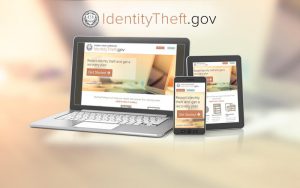 Where do identity theft victims turn for help? For many, it’s the same place they turn whenever they’re stumped — their local library. They know a librarian will find the right resource to help them recover from a crime that affects millions of people every year. IdentityTheft.gov is that resource, a free government site to report identity theft to the Federal Trade Commission, build a step-by-step personalized recovery plan, and put that plan into action.
Where do identity theft victims turn for help? For many, it’s the same place they turn whenever they’re stumped — their local library. They know a librarian will find the right resource to help them recover from a crime that affects millions of people every year. IdentityTheft.gov is that resource, a free government site to report identity theft to the Federal Trade Commission, build a step-by-step personalized recovery plan, and put that plan into action.
How it works:
Go to IdentityTheft.gov and answer some questions about what happened. The site will:
- Build your customized recovery plan
- Walk you through each recovery step
- Track your progress and adapt to your changing situation
- Pre-fill letters and forms that you can use to deal with businesses, debt collectors, and even the IRS.
How libraries can use IdentityTheft.gov:
- Use it to give your patrons advice. If your library has a secure network, help them report the theft and and open an account. If not, give them an IdentityTheft.gov fact sheet and suggest they visit the site from a secure network or using their mobile phone’s cellular data.
- Order free bookmarks and factsheets! Visit FTC.gov Bulkorder and order as many bookmarks and fact sheets as you need for FREE.
- Visit FTC.gov/libraries. Get more consumer tips and tools; they’re free and in the public domain. You can use the content in your library’s newsletters, share them online, and even put your library’s logo and branding on them.
Please use these materials to empower yourself and your community to fight back against identity theft!
History of Armed Forces Day
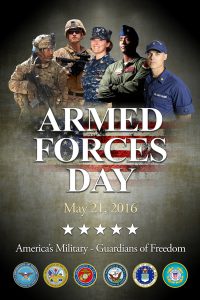 This past Saturday, May 21st was Armed Forces Day. In the United States, Armed Forces Day is celebrated on the third Saturday in May. It falls near the end of Armed Forces Week, which begins on the second Saturday of May and ends on the third Sunday of May (the fourth if the month begins on a Sunday, as in 2016).
This past Saturday, May 21st was Armed Forces Day. In the United States, Armed Forces Day is celebrated on the third Saturday in May. It falls near the end of Armed Forces Week, which begins on the second Saturday of May and ends on the third Sunday of May (the fourth if the month begins on a Sunday, as in 2016).
President Harry S. Truman led the effort to establish a single holiday for citizens to come together and thank our military members for their patriotic service in support of our country. First observed on 20 May 1950, the day was created on 31 August 1949 by Secretary of Defense Louis Johnson, to honor Americans serving in the five U.S. military branches – the U.S. Army, U.S. Navy, U.S. Marine Corps, U.S. Air Force and U.S. Coast Guard – following the consolidation of the military services in the U.S. Department of Defense. It was intended to replace the separate Army, Navy, Air Force, Marine Corps and Coast Guard Days, but the separate days are still observed, especially within the respective services.
The first Armed Forces Day was celebrated by parades, open houses, receptions and air shows. The United States’ longest continuously running Armed Forces Day Parade is held in Chattanooga, Tennessee. In 2016, Chattanooga celebrated the 67th year of the Armed Forces Day Parade, which also began in 1950.
School librarian’s workshop: federal government resources for K-12
 A live training webinar, “School Librarian’s Workshop: Federal Government Resources for K-12 / Taller para maestros de español: Recursos de gobierno federal para niveles K-12,” will be presented on Tuesday, May 31, 2016.
A live training webinar, “School Librarian’s Workshop: Federal Government Resources for K-12 / Taller para maestros de español: Recursos de gobierno federal para niveles K-12,” will be presented on Tuesday, May 31, 2016.
Click here to register!
- Start time: 2:00 p.m. (Eastern), 1:00 (Central)
- Duration: 60 minutes
- Speaker: Jane Canfield, Coordinator of Federal Documents, Pontifical Catholic University of Puerto Rico
- Learning outcomes: Are you a school librarian? Do you work with school librarians or children? The School Librarian’s Workshop will provide useful information for grades K-12, including Ben’s Guide to the U.S. Government and Kids.gov. The webinar will explore specific agency sites which provide information, in English and Spanish, appropriate for elementary and secondary school students. Teachers and school librarians will discover information on Federal laws and regulations and learn about resources for best practices in the classroom.
- Expected level of knowledge for participants: No prerequisite knowledge required.
Closed captioning will be available for this webinar.
The webinar is free, however registration is required. Upon registering, a confirmation email will be sent to you. This registration confirmation email includes the instructions for joining the webinar.
Registration confirmations will be sent from sqldba[at]icohere.com. To ensure delivery of registration confirmations, registrants should configure junk mail or spam filter(s) to permit messages from that email address. If you do not receive the confirmation, please notify GPO.
GPO’s eLearning platform presents webinars using WebEx. In order to attend or present at a GPO-hosted webinar, a WebEx plug-in must be installed in your internet browser(s). Download instructions.
Visit FDLP Academy for access to FDLP educational and training resources. All are encouraged to share and re-post information about this free training opportunity.
Webinar — Increasing Veterans’ Access with eBenefits
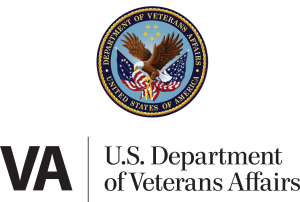 A live training webinar, “Increasing Veterans’ Access with eBenefits,” will be presented on Thursday, June 16, 2016.
A live training webinar, “Increasing Veterans’ Access with eBenefits,” will be presented on Thursday, June 16, 2016.
Register today for “Increasing Veterans’ Access with eBenefits”
- Date: Thursday, June 16, 2016
- Start time: 2:00 p.m. (Eastern), 1:00 (Central)
- Duration: 60 minutes
- Speaker: Zorina Pritchett, Department of Veterans Affairs (VA)
- Description: Would you like to do more to help veterans? Learn the basics of the Department of Veterans Affairs’ eBenefits web portal, which allows veterans, service members, and eligible dependents to directly access VA benefits and services. Understanding eBenefits will allow you to assist eligible users in accessing the portal so they can effectively manage their VA benefits and military information. This webinar will present an overview of the eBenefits registration, basic navigation, reference contacts, and key resources.
- Expected level of knowledge for participants: No prerequisite knowledge required
Closed captioning will be provided for this webinar.
The webinar is free, however registration is required. Upon registering, a confirmation email will be sent to you. This registration confirmation email includes the instructions for joining the webinar.
Registration confirmations will be sent from sqldba @ icohere.com. To ensure delivery of registration confirmations, registrants should configure junk mail or spam filter(s) to permit messages from that email address. If you do not receive the confirmation, please notify GPO.
GPO’s eLearning platform presents webinars using WebEx. In order to attend or present at a GPO-hosted webinar, a WebEx plug-in must be installed in your internet browser(s). Download instructions.
Visit FDLP Academy for access to FDLP educational and training resources. All are encouraged to share and re-post information about this free training opportunity with others.
Webinar — The Outreach Bridge to Engaging Latino and Spanish-speaking Families
 This webinar presents strategies for library outreach to and engagement with Latino and Spanish-speaking communities, laying the groundwork for successful programming.
This webinar presents strategies for library outreach to and engagement with Latino and Spanish-speaking communities, laying the groundwork for successful programming.
If you want to attract Latino and Spanish-speaking families to your library, the instinct is to launch a bilingual or Spanish-language storytime. It’s the “if we build it, they will come” logic for attracting community members who are not being served by the library. Libraries may be disappointed to discover that it doesn’t necessarily work that way. In this webinar, recognize the critical role that outreach plays in bridging the gap between Latino and Spanish-speaking families and library services. Hear real-world examples of outreach strategies from librarians who successfully connected with their Latino and Spanish-speaking communities, and learn a basic outreach process that you can adapt for your own community.
Presented by: Katie Scherrer, Connected Communities, consultant and co-author of Once Upon a Cuento: Bilingual Storytime in English and Spanish; and Lauren Simon, Community Librarian, Tualatin Public Library
Related Resources:
- On WebJunction:
Helping Schools Ensure the Civil Rights of Transgender Students… U.S. Department of Education: Examples of Policies and Emerging Practices for Supporting Transgender Students
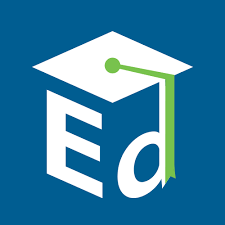 The U.S. Department of Education is committed to providing schools with the information they need to provide a safe, supportive, and nondiscriminatory learning environment for all students. It has come to the Department’s attention that many transgender students (i.e., students whose gender identity is different from the sex they were assigned at birth) report feeling unsafe and experiencing verbal and physical harassment or assault in school, and that these students may perform worse academically when they are harassed. School administrators, educators, students, and parents are asking questions about how to support transgender students and have requested clarity from the Department of Education. In response, ED has developed Examples of Policies and Emerging Practices for Supporting Transgender Students.
The U.S. Department of Education is committed to providing schools with the information they need to provide a safe, supportive, and nondiscriminatory learning environment for all students. It has come to the Department’s attention that many transgender students (i.e., students whose gender identity is different from the sex they were assigned at birth) report feeling unsafe and experiencing verbal and physical harassment or assault in school, and that these students may perform worse academically when they are harassed. School administrators, educators, students, and parents are asking questions about how to support transgender students and have requested clarity from the Department of Education. In response, ED has developed Examples of Policies and Emerging Practices for Supporting Transgender Students.To see, and/or print this 25 page report, click on the title above.
Activate, Collaborate, and Educate: Health Outreach and Programming in Your Community
 June 2, 2016 – 10-11 AM Central / 9-10 AM Mountain Time (online)
June 2, 2016 – 10-11 AM Central / 9-10 AM Mountain Time (online)
National Network of Libraries of Medicine MidContinental Region
Presenter: Community Engagement Coordinator, Dana Abbey.
Description: This presentation will provide an overview of ideas to conduct health outreach and create health programs for libraries and community/faith based organizations. Participants will learn how to integrate resources from the National Library of Medicine (NLM) and other reputable agencies to introduce community members to NLM resources in fun and engaging ways. Examples of programs for children, teens, adults and/or seniors using NLM and other National Institutes of Health center and office resources will be shared. The examples in this session will focus on a nutrition and food label program for families to align with the summer reading 2016 theme.
This class has been approved for 1 hour of continuing education credits by the Medical Library Association and is eligible for MLA Level 1 and Level 2 Consumer Health Information Specialization (CHIS).
Registration required. Visit http://nnlm.gov/mcr/training-schedule for registration link and more information.
Annette Parde-Maass
Health Information Literacy Coordinator
National Network of Libraries of Medicine
Creighton University|Health Sciences Library
AnnetteParde-Maass@creighton.edu
402.280.4156
Genealogy Essentials: Helping Patrons Search for Family Roots
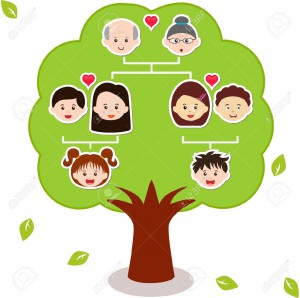 Curiosity about where one comes from is innate to the human spirit. Did my grandmother adorn graves with marigolds for Día de los Muertos too? Mom, why do we fast for Ramadan? Did my great-great-grandfather really elope from Ontario to Wisconsin? Where do my people come from? Who am I?
Curiosity about where one comes from is innate to the human spirit. Did my grandmother adorn graves with marigolds for Día de los Muertos too? Mom, why do we fast for Ramadan? Did my great-great-grandfather really elope from Ontario to Wisconsin? Where do my people come from? Who am I?
Our personal histories are often a mix of heritage, culture, ethnicity and religion. One way to connect with our roots is through genealogy research. So many internet-based tools exist to help our patrons explore their histories, but as library staff we can help guide patrons to connect successfully with the details and stories of their ancestry.
On May 19, WebJunction will hold the free webinar Genealogy Essentials: Helping Patrons Search for Family Roots to show you how to assist patrons with genealogical questions using FamilySearch.org, a leading genealogy resource.
Most communities encompass many different cultures and heritages. This presents opportunities for libraries, and if you’re looking for ways to expand how you bring together the different facets of your community, check out the archived webinar Community Engagement: Serving Diverse Communities Where They Are.
Knowing that Latino and Spanish-speaking communities are growing around the country, we’re curious in our May Crossroads poll specifically if and how you are reaching these communities at your library. Let us know!








